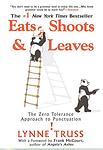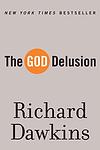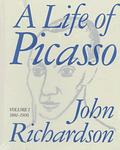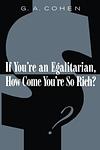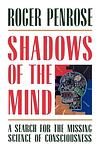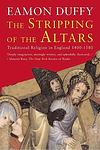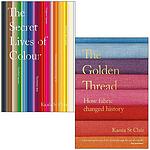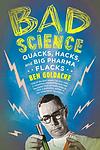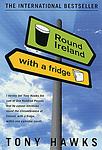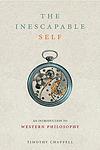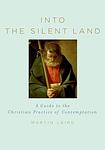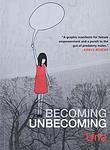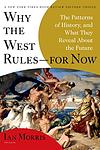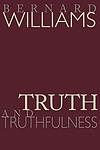The Greatest British "Nonfiction" Books Since 1990
Click to learn how this list is calculated.
This list represents a comprehensive and trusted collection of the greatest books. Developed through a specialized algorithm, it brings together 288 'best of' book lists to form a definitive guide to the world's most acclaimed books. For those interested in how these books are chosen, additional details can be found on the rankings page.
Genres
Countries
Date Range
Reading Statistics
Click the button below to see how many of these books you've read!
Download
If you're interested in downloading this list as a CSV file for use in a spreadsheet application, you can easily do so by clicking the button below. Please note that to ensure a manageable file size and faster download, the CSV will include details for only the first 500 books.
Download-
26. Eats, Shoots and Leaves by Lynne Truss
This book is a humorous, yet educational, exploration of punctuation in the English language. The author uses wit and sarcasm to highlight the importance of correct punctuation, demonstrating how it can drastically change the meaning of a sentence. It provides examples of punctuation errors and their hilarious consequences, while also offering practical advice on how to avoid such mistakes. The book is a spirited call to arms for grammar enthusiasts, emphasizing the necessity of preserving the clarity and precision in writing that proper punctuation provides.
-
27. The God Delusion by Richard Dawkins
This book is a well-known critique of religion, arguing that belief in a supernatural creator significantly lacks empirical evidence. The author asserts that faith encourages wars and fosters fanaticism. He also challenges the idea that morality can only come from religion, suggesting instead that humans possess innate empathy and cooperation. The book also explores the roots of religion, explaining its evolution as a byproduct of our tendency to assign agency to inanimate objects and forces. Ultimately, the author encourages atheism and a sense of awe derived from science and the natural world.
-
28. A Life of Picasso by John Richardson
This biography delves into the life of one of the most influential artists of the 20th century, Picasso. The book provides an in-depth look into his early life, his relationships, his artistic evolution, and his influence on the art world. It offers a comprehensive exploration of Picasso's personal and professional life, shedding light on his genius and the complexities of his character. The author's detailed research and intimate knowledge of the artist's life make this book a definitive biography of Picasso.
-
29. Untold Stories by Alan Bennett
"Untold Stories" is a collection of essays, diary entries, and recollections by a renowned playwright. It provides an insightful look into his life, experiences, and thoughts. The book is divided into two parts, with the first part focusing on his family history and the second part containing his personal reflections and observations about various topics, including art, architecture, and literature. It offers a unique perspective on the author's upbringing in Leeds and his later life in London, as well as his views on society and culture.
-
30. London: The Biography by Peter Ackroyd
This book is a comprehensive exploration of the city of London, from its ancient origins to the modern era. The author delves into the city's rich history, culture, and unique character, examining its evolution through various lenses such as crime, religion, commerce, education, and entertainment. The narrative is brought to life with fascinating anecdotes, vivid descriptions, and a wealth of historical detail, providing an immersive and engaging portrait of one of the world's most iconic cities.
-
31. An Evil Cradling by Brian Keenan
"An Evil Cradling" is a harrowing memoir of a man's four-year captivity in Beirut, Lebanon. Captured by fundamentalist Shi'ite militiamen in 1986, the author, an Irish citizen, endures solitary confinement, starvation, and brutal physical abuse. Despite his grim situation, he manages to find humanity in the most unlikely of places and individuals, including one of his captors. His eventual release is a poignant moment of triumph against the backdrop of his traumatic ordeal.
-
32. H Is For Hawk by Helen MacDonald
"H Is For Hawk" is a memoir by Helen MacDonald about her experiences training a goshawk named Mabel after the sudden death of her father. MacDonald reflects on her grief and the challenges of training a wild bird while also delving into the history of falconry and the life of T.H. White, the author of "The Once and Future King" who also trained a goshawk. The book explores themes of loss, nature, and the complexities of human-animal relationships.
-
33. If You're An Egalitarian, How Come You're So Rich? by G. A. Cohen
This book delves into the apparent contradiction between advocating for egalitarian principles and possessing personal wealth. The author, a prominent political philosopher, uses a blend of rigorous argument, personal reflection, and analytical philosophy to explore whether it is hypocritical for a wealthy person to support redistributive policies. The text challenges readers to consider the moral implications of their own economic status and beliefs, and examines broader issues of justice, equality, and personal responsibility within a capitalist society. Through engaging philosophical inquiry, the book prompts a deeper understanding of the practical and ethical tensions that accompany discussions of wealth and equality.
-
34. Shadows Of The Mind by Roger Penrose
In "Shadows of the Mind," the author delves into the complex relationship between the physical brain and the conscious mind, arguing against the prevailing computational theory of mind. The book presents a hypothesis that human consciousness transcends algorithmic computation, suggesting that quantum mechanics plays an integral role in the emergence of consciousness. The author critiques the limitations of artificial intelligence in replicating human thought and proposes that understanding consciousness may require new physics that bridges the gap between the known scientific principles and the phenomenological experience of awareness.
-
35. The Stripping of the Altars by Eamon Duffy
"The Stripping of the Altars" provides an in-depth look into the religious practices and beliefs of the English people before, during, and after the Protestant Reformation. The book challenges the traditional narrative of a corrupt Catholic Church being replaced by a more pure Protestantism, instead arguing that Catholicism was a vibrant and beloved part of English life. The author uses a wealth of historical evidence to show that the Reformation was a violent rupture rather than a smooth transition, resulting in a profound loss for the people who were forcibly separated from the rituals and traditions that had structured their spiritual lives for generations.
-
36. The Secret Lives Of Colour by Kassia St. Clair
This book delves into the rich history and cultural significance of colors, exploring their origins, science, and social implications. It offers a vibrant journey through a rainbow of hues, from the rarest pigments to the most ubiquitous shades, revealing fascinating stories behind each color. The narrative uncovers how colors have been produced and used in art, fashion, politics, and warfare, shaping human civilization in profound ways. Through anecdotes and meticulous research, the book presents an eye-opening perspective on the palette of our world, illustrating how deeply colors influence our experiences and our very understanding of the world around us.
-
37. Marie Antoinette by Antonia Fraser
This historical biography provides an in-depth look at the life of the last Queen of France before the French Revolution. It delves into her Austrian origins, her marriage to Louis XVI, and her role in the opulent and politically turbulent court of Versailles. The book portrays her as a woman more complex and sympathetic than the often portrayed frivolous queen, examining her personal relationships, her struggles with the hostile French public, and her ultimate tragic end at the guillotine. Through meticulous research, the narrative aims to dispel the myths surrounding her legacy, offering a nuanced account of her life and the tumultuous era she lived in.
-
38. Why Be Happy When You Could Be Normal? by Jeanette Winterson
This book is a deeply personal memoir about a woman's quest for identity and happiness amidst a turbulent childhood. Raised by an abusive and religiously fanatic adoptive mother in a small, industrial town in Northern England, the author struggles with her sexuality, eventually being thrown out of her home for having a relationship with another woman. She later embarks on a journey to find her biological mother, all while wrestling with her own mental health issues and trying to make sense of her place in the world. The narrative is a raw exploration of love, loss, and the power of literature as a means of escape and self-discovery.
-
39. Skating To Antarctica by Jenny Diski
This book is a deeply introspective memoir that intertwines the author's journey to the icy desolation of Antarctica with her exploration of her own troubled past. As she travels toward the frozen continent, the author reflects on her childhood experiences, her estrangement from her parents, and her struggles with mental health. The stark, unforgiving landscape of Antarctica serves as a backdrop for her to confront her memories, offering a poignant and lyrical meditation on isolation, family, and the search for personal peace amidst the vastness of the ice.
-
40. No Mercy by Redmond O'Hanlon
The book is a riveting travelogue that follows the author's harrowing journey into the depths of the Congo Basin, seeking to uncover the truth behind the legends of a dinosaur-like creature said to inhabit the region. Accompanied by a motley crew of scientists and adventurers, the author battles the relentless forces of nature, encounters a myriad of dangerous wildlife, and grapples with the psychological strains induced by the harsh and unpredictable environment. The narrative is as much an exploration of the human spirit and the bonds formed in extreme circumstances as it is a quest for a mythical beast, all told with a blend of humor, vivid description, and keen anthropological insight.
-
41. The Ordeal Of Elizabeth Marsh: A Woman In World History. by Linda Colley
"The Ordeal of Elizabeth Marsh" by Linda Colley tells the story of a remarkable woman who lived in the 18th century and traveled the world, experiencing various cultures and societies. Elizabeth Marsh was born into a wealthy family in England but faced many challenges throughout her life, including being kidnapped in Morocco and facing financial ruin. Colley uses Marsh's story to explore themes of gender, power, and imperialism, and to shed light on the experiences of women in world history.
-
42. Bad Science by Ben Goldacre
This book exposes the ways in which the media and advertisers manipulate and misrepresent science, leading to public misconceptions and confusion. The author, a doctor and science journalist, provides a critical examination of the pseudoscience behind popular health fads, cosmetics, and alternative medicine, while also critiquing the misuse of statistics and flawed studies. The book serves as a guide to understanding the scientific method and how to discern good science from bad, aiming to promote scientific literacy among the general public.
-
43. Round Ireland With A Fridge by Tony Hawks
This humorous travelogue recounts the author's quirky adventure around Ireland, a journey he undertook on a bet to hitchhike the circumference of the country with a refrigerator in tow. Through the whimsical narrative, readers are taken on an unexpected cultural tour as the author encounters a variety of characters, experiences the warmth of Irish hospitality, and navigates the logistical challenges of traveling with an unconventional companion. The story is as much about the kindness of strangers and the absurdity of the situation as it is about the beautiful landscapes of Ireland, ultimately offering a light-hearted and endearing look at human connection and the joy of embracing the ridiculous.
-
44. The Inescapable Self by Timothy Chappell
This philosophical work delves into the concept of selfhood, exploring the idea that despite the myriad ways individuals may change and evolve over time, there remains an inescapable core to one's identity. The author navigates through various philosophical traditions and thinkers to examine how the self is perceived, constructed, and understood in different contexts. By addressing questions of morality, autonomy, and the nature of personal change, the book offers a comprehensive analysis of what it means to be a self, arguing that there is an essential aspect of individual identity that persists through life's transformations. This exploration not only sheds light on the philosophical underpinnings of selfhood but also encourages readers to reflect on the nature of their own identity.
-
45. Into The Silent Land by M. S. (Martin S. ). Laird
"Into the Silent Land" is a profound exploration of contemplative prayer and the journey towards inner stillness. The book serves as a guide to understanding the depths of the human mind and the spiritual path that leads one to experience the presence of the divine within. Drawing from Christian mystical traditions and the wisdom of ancient monks, the text offers practical advice and insights for those seeking to deepen their meditation practice and foster a more intimate relationship with the transcendent. Through anecdotes, theological reflections, and step-by-step guidance, the reader is invited to embark on a transformative journey into the heart of silence, where the noise of the ego subsides and the soul encounters the sacred in the quiet spaces of contemplation.
-
46. The Shock Of The Old by David Edgerton
This book challenges the conventional narratives of innovation and technological progress, arguing that society's focus on the 'new' overlooks the importance and impact of older technologies that continue to shape our world. By examining how outdated technologies, such as the rickshaw or the propeller plane, have persisted and even thrived alongside modern advancements, the author presents a compelling case for reevaluating our understanding of technological change. Through a series of insightful case studies, the work encourages readers to reconsider the ways in which they think about technology's role in history and its influence on the present and future.
-
47. Becoming Unbecoming by Una
This graphic novel is a poignant exploration of gender violence, identity, and the journey of healing. It intertwines the author's personal narrative of growing up in the 1970s in Northern England with the historical backdrop of the Yorkshire Ripper, a notorious serial killer targeting women. As the author grapples with her own experiences of sexual abuse and societal pressures, the book delves into themes of misogyny, shame, and the societal tendency to blame victims rather than perpetrators. Through powerful illustrations and candid prose, it offers a deeply personal account of the struggle to overcome trauma and the cultural silence surrounding sexual violence.
-
48. Through the Language Glass: Why the World Looks Different in Other Languages by Guy Deutscher
This book explores the link between language and perception, challenging the conventional belief that languages are only tools for describing reality and do not influence the way we perceive the world. The author delves into how different languages can shape the way their speakers understand and interact with their surroundings, arguing that linguistic differences can significantly impact cognition and perception. The book combines linguistic analysis, cultural history, and cognitive science to provide a fascinating examination of how our mother tongue can affect our cognitive processes, including color perception and spatial orientation.
-
49. Why the West Rules - For Now: The Patterns of History, and What They Reveal About the Future by Ian Morris
This book is a comprehensive exploration of the historical and cultural patterns that have led to Western dominance in the world. The author uses a broad range of evidence from archaeology, genetics, and linguistics to trace the development of East and West from prehistoric times to the present, arguing that physical geography, rather than culture, religion, or great men, is the primary driving force behind the rise of the West. The book also offers a forecast for the future, predicting a shift in global power from the West to the East.
-
50. Truth And Truthfulness by Bernard Williams
This philosophical work explores the importance of truth and the practice of truthfulness in society, arguing against the skepticism and relativism that question the value and possibility of truth. The author delves into the concepts of accuracy and sincerity, which he identifies as the two basic virtues of truth, and examines how these virtues are essential to human practices and institutions. Through a blend of historical analysis and philosophical inquiry, the book defends the indispensability of truth and truthfulness, while also acknowledging the challenges and complexities involved in upholding these ideals in the modern world. The author's insightful analysis aims to reconcile the demands of truth with the necessities of social cohesion, offering a compelling case for why truth and truthfulness matter profoundly in both personal and public life.
Reading Statistics
Click the button below to see how many of these books you've read!
Download
If you're interested in downloading this list as a CSV file for use in a spreadsheet application, you can easily do so by clicking the button below. Please note that to ensure a manageable file size and faster download, the CSV will include details for only the first 500 books.
Download